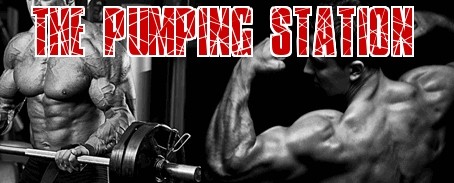What Vitamins Should Bodybuilders Take
Vitamins are the metabolic spark plugs that are as vitally important to success as a bodybuilder as lifting weights. The requirements for all anabolic growth, including maintenance in the muscle depends on a complex set of biochemical reactions. It is these complex reactions that depend on vitamins.
If just one of these important vitamins is missing it will cease any anabolic activity without warning, every one of the different energy producing required to build muscle relies on a vitamin at some point, without which it stops. Without vitamins bone density would deteriorate along and muscle decay will increase.
Generally vitamins are split in two categories, water soluble and fat soluble which are vitamins A, D,E and K. These vitamins are stored in fat and therefore do not need to be replaced every day. Water soluble vitamins are the from the A, E and B complex range of vitamins (except Vitamin C), they include Niacin B3, Riboflavin B2, Thiamine B1, Cobalamin B12, Folate, Pantothenic acid and Biotin.
It is these water soluble vitamins that are important because they are water soluble and therefore vital for any bodybuilder who is training to build muscle. Unlike the fat soluble vitamins these have no toxicity level as they get easily flushed out when you take too much.
Any bodybuilder needs to know the required list of water soluble vitamins that should be taken that directly affect protein synthesis, muscle cell integrity and will directly improve results and/or performance. We have compiled a list with a brief explanation on each vitamin.
Cobalamin (vitamin B12)
Vitally important for carbohydrate metabolism, maintenance of nerve tissue and the contraction of any muscle as it can speed up the stimulation of the nerves sending messages to the muscles. Vitamin B12 plays an important role in co-ordination and peak muscle contraction.
Biotin
Biotin has a critical function in all amino acid metabolism and producing energy. Biotin can be blocked by something called Avidin, which is found in raw egg whites, that is why poached and/or hard-boiled eggs are recommended. A vitamin often overlooked by many bodybuilders, which is why it is listed.
Riboflavin (vitamin B2)
Riboflavin help get you energy being an important catalyst in Glucose metabolism, the oxidation of all fatty acids, and shuttling out of hydrogen ions in the Krebs cycle. Riboflavin is also involved in protein metabolism, which is why it is so important for bodybuilders.
Vitamin A
An important part of protein synthesis directly responsible for any and all muscle growth. But vitamin A is also directly involved in the production of muscle glycogen stored in the muscle needed for any high intensity workout. Vitally important when on a strict diet as vitamin A absorption is disrupted by high intensity exercise and is lost in the feces when on a low fat diet.
Vitamin E
Vitamin E protects the cell membrane and is a powerful antioxidant directly affecting the rate of recuperation and muscle growth. It helps to reduce free radicles found in the body helping to reduce the chances of cancer while aiding muscle cell growth and repair.
Niacin (vitamin B3)
Niacin is directly involved in 60 different metabolic processes to produce energy and studies show athletes need more niacin than non-athletes. However if there is no niacin the body is able to make it from an amino acid called tryptophan, found in turkey meat.
Vitamin D
Vitamin D is a critical part of Calcium and Phosphorus absorption. Calcium is needed for muscular contraction and if there is not enough calcium muscle contraction will be diminished. Phosphorus helps to enable fast and powerful muscular contractions and is required for the synthesis of ATP (Adenosine Triphosphate).
Thiamine (vitamin B1)
Thiamine is directly involved in protein metabolism and growth as well as the formation of hemoglobin, which is a protein in red blood cells responsible for that transportation of oxygen in working muscles. Oxygen transportation is critical to any athletic performance especially during high intensity.
Vitamin B6 (Pyridoxine)
Protein metabolism, muscle growth and the use of carbohydrates are made possible by vitamin B6. Like Thiamine, studies in Pyridoxine show that the more used, the more will be needed. Pyridoxine is directly connected to protein intake and protein metabolism. This means that the more protein you eat the more Pyridoxine you will need.
Vitamin C (Ascorbic Acid)
Probably the most important vitamin for any bodybuilder, ascorbic acid is an antioxidant which helps to protect the muscle from any free radical damage which enhances muscle recovery and muscle growth.
Vitamin C is also directly involved with amino acid metabolism helping to form Collagen which is needed to strength all connective tissue. Vitamin C also will help directly in the absorption or iron, which helps oxygen bind to hemoglobin.
Without vitamin C oxygen transportation will be severely limited and muscle recovery or growth will be stopped. Vitamin C is also needed for the release of testosterone and HGH (human growth hormone) required for any muscle building to take place.
Click Here to Sign Up for Your Free Bodybuilding Magazine Subscription
